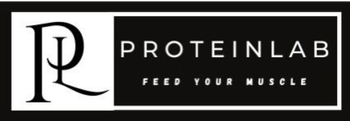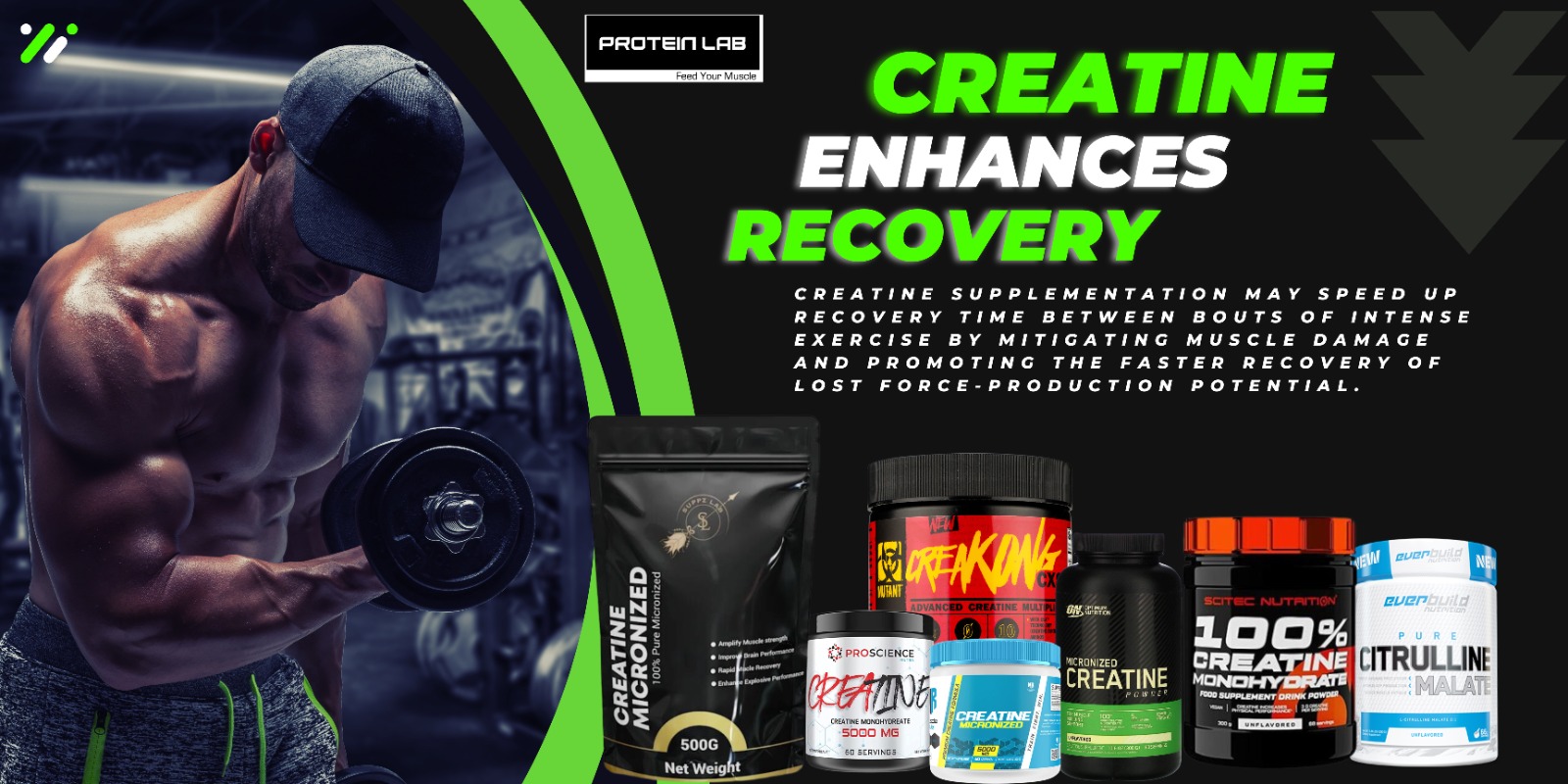What are Creatine Monohydrates?
Creatine is recognized by most parts of the Western world as a product that delivers on its promise of increased strength, prolonged endurance, improved workout performance, enhanced cognitive ability, better memory, and many other benefits. It is sad to see that creatine supplementation awareness is still very lacking in the Malaysian fitness community.
Even though creatine is the most researched supplement in the world, most people view creatine supplements as only for fitness people or gym goers. However, time and time again, creatine has been shown to be able to not only help active people but also inactive individuals.
ProteinLab Malaysia founder @Kevinn.Khoo even goes into ranking creatine monohydrate as the most important supplement for him. The reason is simple why he ranked creatine monohydrate supplements as his number 1 supplement is that, Creatine is hard to come by from consuming natural food and it is amazingly cheap in supplement form with so many more benefits to overall health and fitness. Whereas Protein is overhyped, as he says, it is one of the easiest sources to come by from daily meals. Not only @Kevinn.Khoo talks highly of creatine supplementation, but take Dan Go, for example with his below tweets:
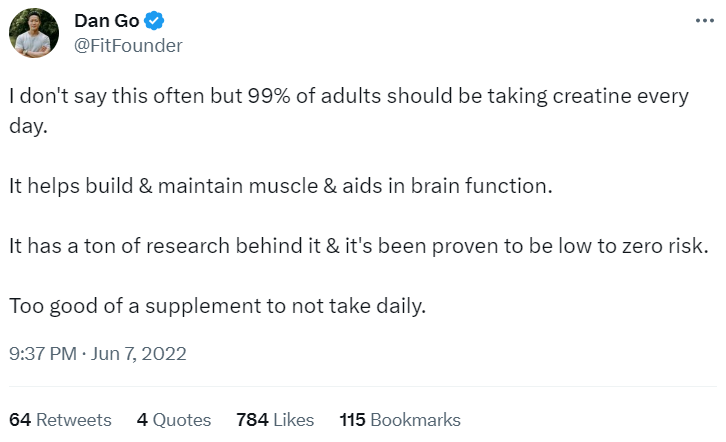
Although more people are looking into getting or already using creatine as one of their staple supplements besides their proteins and pre-workout supplements. This is mainly limited to people who are adopting a healthy and fitness lifestyle. However, in this article, we will review creatine benefits and how even creatine monohydrate supplementation can benefit everyone including sedentary people, older individuals, vegetarians, vegans, students, office workers, and much much more.
As mentioned earlier, those who are involved in the bodybuilding/strength training world - trainers and athletes alike - would know the importance of proper supplementation. One of the more successful supplements to hit the shelves would be the creatine monohydrate supplement. As technology advances, various forms, and types of creatine monohydrate, which over the years have become more and more advanced, ranging from liquid creatine up to amazingly tasty gummies bear creatine monohydrate which can be easily googled as our Proteinlab Malaysia team have done in the picture below:

Creatine supplementation has been recognized by the scientific community and the hard-training athlete as a product that delivers on its promise of improved strength, enhanced muscle size, produce explosive power, and most importantly creatine is not banned in any sports or competitions worldwide.
Since, creatine monohydrate supplements (basically a fuel source for ATP, which is an energy system used for short bursts of power) is a product not without its share of controversy. Creatine has been viewed as a potentially harmful product by some authorities which has been debunked by now. It has since been shown that if used correctly, it is one of the safer supplements to take. Also, we will discuss later how creatine supplementation is able to benefit the older generation, teenagers, and normal individuals who need more mental and physical energy output in their daily lives.
What Proteinlab Malaysia knows is that creatine works, and works well for the majority of people who use it as a regular part of their sporting/exercise/study program. Creatine is particularly well-suited for complementing high-intensity, short-duration training exercises, mental performance capability, and overall vitality. In this article, we will review creatine's benefits, some important studies to back its efficacy, its broader applications, and the populations who will benefit most from its use.
Benefits of Supplementing with Creatine
Creatine Monohydrate is one of the most heavily researched supplements in the history of sports nutrition (over 200 studies to date, over the last decade), creatines efficacy cannot be denied. But exactly what benefits will it provide?
1. High-Intensy Workout
Creatine enhances the body's capacity to perform high-intensity work (and assists greater muscle size and performance gains as a result).
Creatine phosphate (creatine's high energy molecule form, stored within cells) is used to supply the type 11b muscle fibers (fast-twitch high-glycolytic; the ones that get largest in size) with immediate energy, ensuring these muscles do not prematurely fatigue.
This strengthens the muscular contraction of these fibers and helps the athlete to pump out more reps, sprint at a faster rate, or engage more forcefully in whatever sport or type of exercise they take part in. Supplementing with creatine allows the muscles to store more of this high-energy molecule to provide greater gains in strength and muscle.
Creatine used in this manner is regarded as a high-energy phosphate, and its role in energy production cannot be overstated. Whenever the body uses energy, a molecule called ATP (adenosine with a tail of three phosphate groups, hence its name Adenosine Tri Phosphate) is used as an energy source - as a fundamental energy donor.
Under conditions of strenuous activity, ATP releases one of these high-energy phosphate groups to power muscular contraction. Once this phosphate has been released, ATP becomes ADP (Adenosine Di-Phosphate, a de-energized form of ATP). To regenerate ATP and assist further energy production - to complete additional reps for example - creatine becomes a key player.
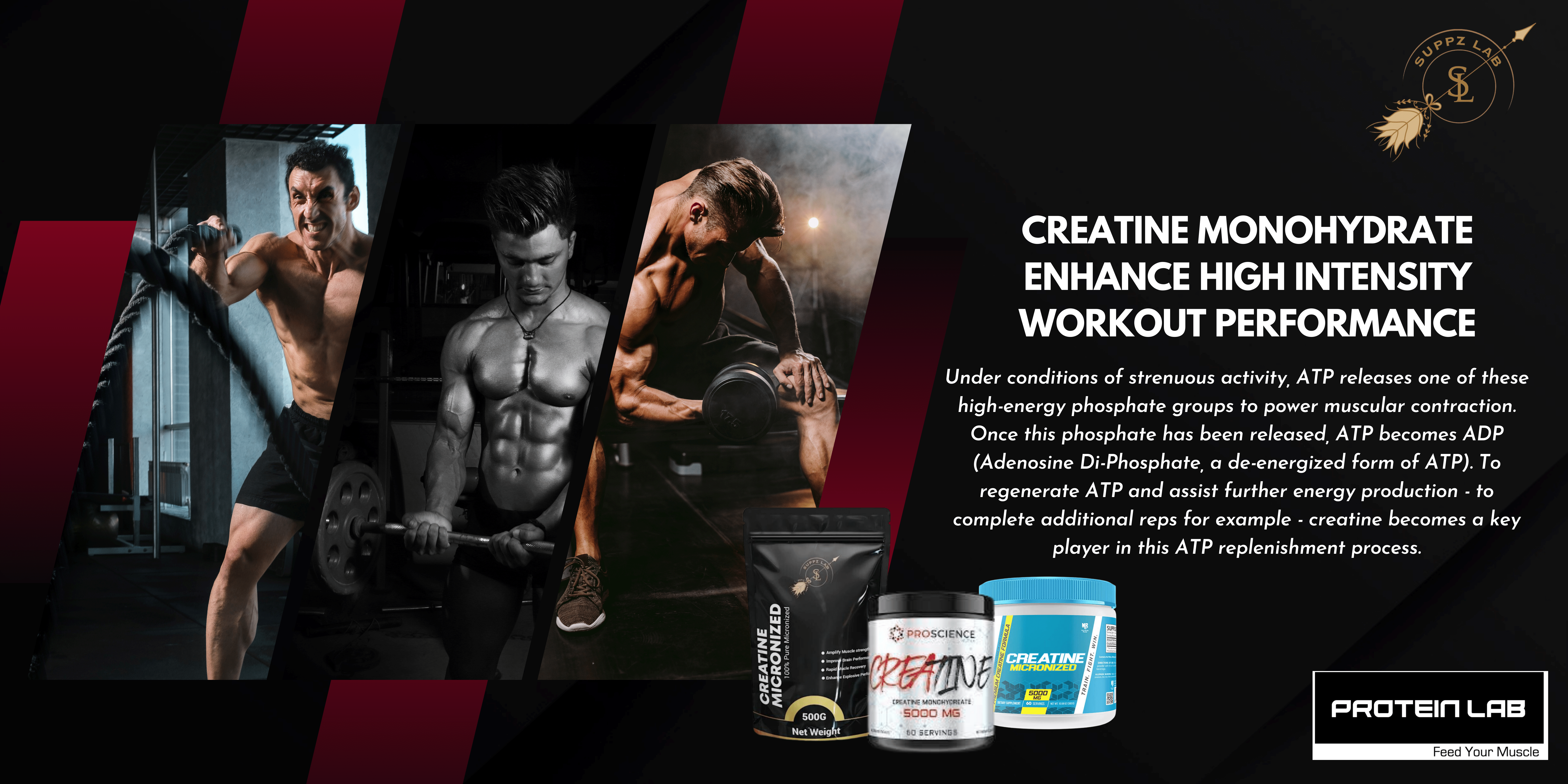
"CREATINE HELPS ATHLETES TO PUMP OUT MORE REPS, SPRINT AT A FASTER RATE, OR ENGAGE MORE FORCEFULLY IN WHATEVER SPORT OR TYPE OF EXERCISE THEY TAKE PART IN.
In fact, without creatine, energy production during high-intensity bouts of exercise would not be possible. Supplemental creatine has been shown to further enhance this process, a fact not lost on the scores of athletes who depend on it to enhance their performance.
For bodybuilders, creatine is of particular significance as it feeds the aforementioned explosive type 11b fibers, thereby increasing power output and subsequently, muscle size.
2. Creatine Exchanges Recovery
In recent years creatine has been studied for its post-exercise muscle regeneration properties. The findings have been very promising. In 2004, Santos and colleagues studied the effects of creatine supplementation on muscle cell damage in experienced endurance athletes running a 30-kilometre race.
Closely monitoring several markers of cell damage (including creatine kinase, lactate dehydrogenase, prostaglandin-E, and tumor necrosis factor-alpha) in their sample of 18 male athletes (who used 20 grams of creatine monohydrate per day for five days, mixed with 60 grams of maltodextrin), the researchers found levels of these markers were reduced after the race, compared to 16 control subjects who took only the maltodextrin.
They concluded that creatine supplementation somehow reduced muscle cell damage and inflammation following the exhaustive exercise. The researchers issued the following statement:
It seems creatine also helps to promote complete recovery from intense exercise. Another reason strength and endurance athletes may benefit from its use.
3. Creatine Improves Anaerobic Capacity
In their impressive study, Ziegenfuss and fellow researchers demonstrated that creatine loading over just three days significantly improved muscle volume and cycle sprint performance in elite power athletes
For this study, ten male and ten female athletes were assigned to creatine or placebo groups, where, before and after the three-day creatine supplementation period, they were assessed on repeated sprint performance and thigh muscle volume - the creatine group was given 0.35 grams of creatine per kilogram of fat-free mass, and all subjects completed six maximal ten-second cycle sprints with 60 seconds of recovery in between.
It was found that over the three-day period, creatine subjects experienced increased total body mass of, on average, 0.9 kilograms, a 6.6% increase in thigh volume (in five of six creatine-taking participants), and increases in performance in all six sprints. Their anaerobic capacity clearly had improved with the addition of creatine, compared to the control subjects who took in only maltodextrin.
4. Creatine Enhances Muscle Volumization
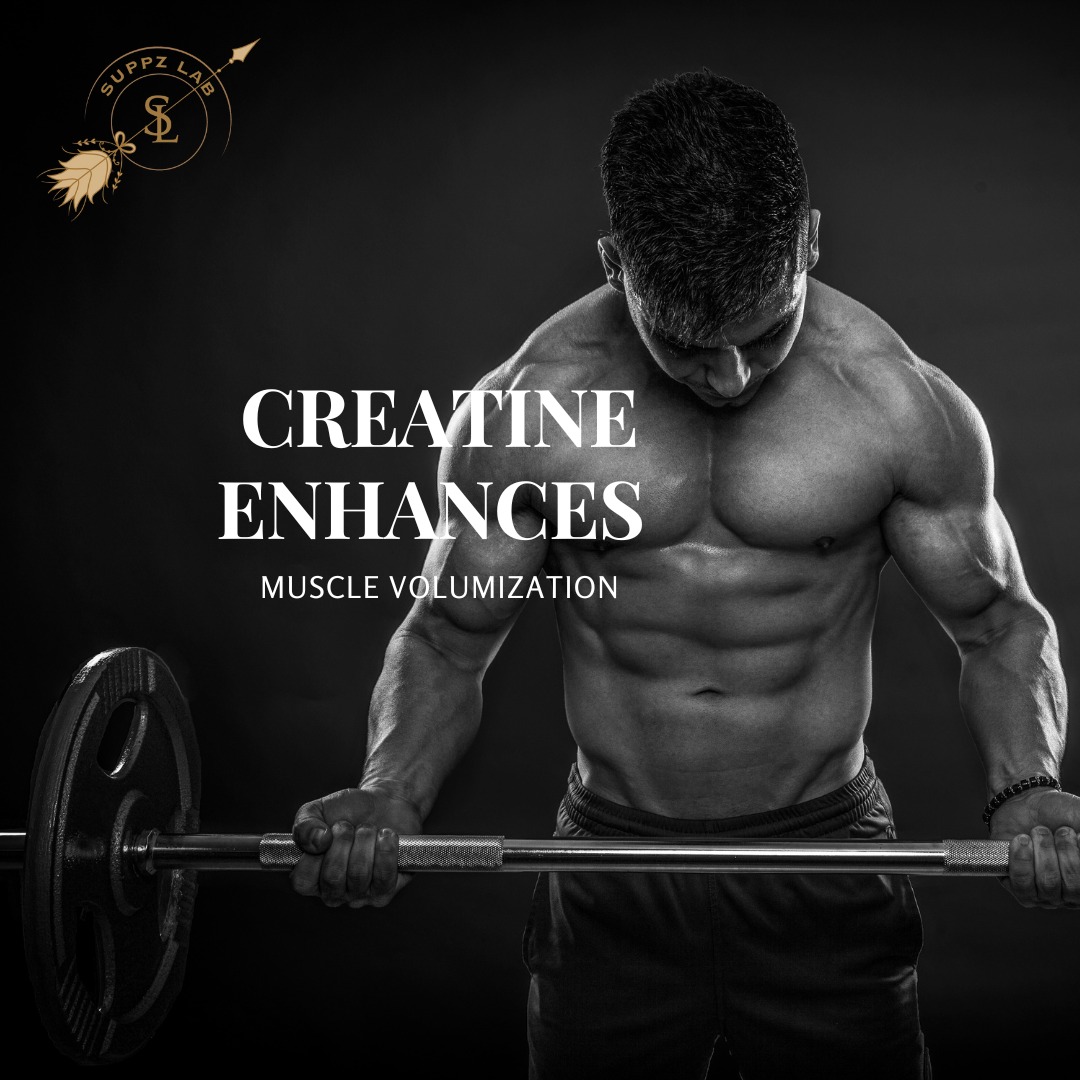
"CREATINE HAS A PROPERTY THAT CAUSES MUSCLE CELLS TO INFLATE, WHICH PRODUCES A MORE HEAVILY MUSCLED APPEARANCE."
Another important benefit for bodybuilders and strength athletes is the creatine muscle volumizing effect. Creatine has a property that causes muscle cells to inflate, which produces a more heavily muscled appearance, and, more importantly, serves as a stimulus for protein synthesis.
Up to six pounds of added body weight in the first few weeks is commonly reported in those who begin creatine supplementation (a process primarily accounted for by water moving rapidly from the bloodstream to the muscle).
5. Creatine Enhances Brain Function
Widely known for its muscle-building benefits, creatine, it appears, has much more to offer than its erogenic properties. Researchers Wyss and Schulze looked at the broader health implications of creatine as they tried to determine its value in treating] several neurodegenerative, vascular, and muscular disorders.
Their findings, published in the prestigious Neuroscience, showed creatine to be an extremely important neuroprotectant (an agent that increases the survival of nerve cells to environmental insults).
Energy metabolism and the production of Reactive Oxygen Species (very small molecules that can result in significant damage to cell structures, which include oxygen ions, free radicals, and peroxides) are thought to underpin many neurodegenerative disorders, and creatine is thought to enhance the brain's ability to survive the metabolic and physical trauma associated with these conditions.
It was found by Wyss and colleagues that those with neurodegenerative disorders associated with creatine deficiencies (inborn errors in creatine production and storage) may require supplemental creatine, in order for it to be more effectively delivered to the central nervous system.
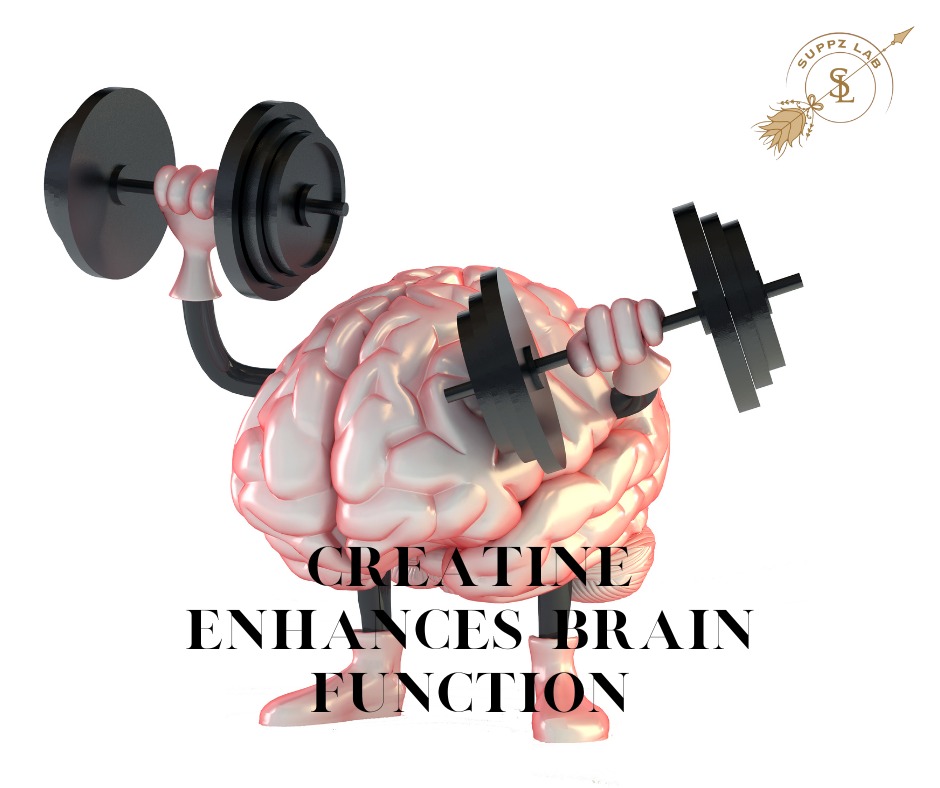
"SUPPLEMENTATION WITH CREATINE SIGNIFICANTLY INCREASED INTELLIGENCE COMPARED WITH THE PLACEBO."
Additionally, Ray and colleagues found creatine to improve brain function (specifically short-term memory) in normal subjects. In a placebo-controlled cross-over design study, 45 vegetarian and vegan subjects (chosen as their intake of creatine was negligible) took five grams per day of creatine for six weeks.
After this period, all subjects were assessed on non-verbal intelligence and verbal memory capacity. It was found that subjects who took creatine rather than the placebo exhibited improved short-term memory, and were better able to problem-solve under time constraints. Significantly, the researchers said:
6. Creatine Improves Bone Healing
Gerbin and co-researchers at the Institute of Cell Biology in Switzerland found creatine could be used successfully as an adjuvant therapy for bone fracture healing or for the treatment of osteoporosis. Based on their in-vivo study, they concluded that creatine significantly enhanced the activity of alkaline phosphate (ALP; an important marker for bone growth).
Cell energy (of which in their study on bone regeneration creatine played a major role) is important for bone development and maintenance, and therefore directly related to osteoporosis. Creatine, as we know, enhances cellular energy production. The researchers linked this to bone formation.
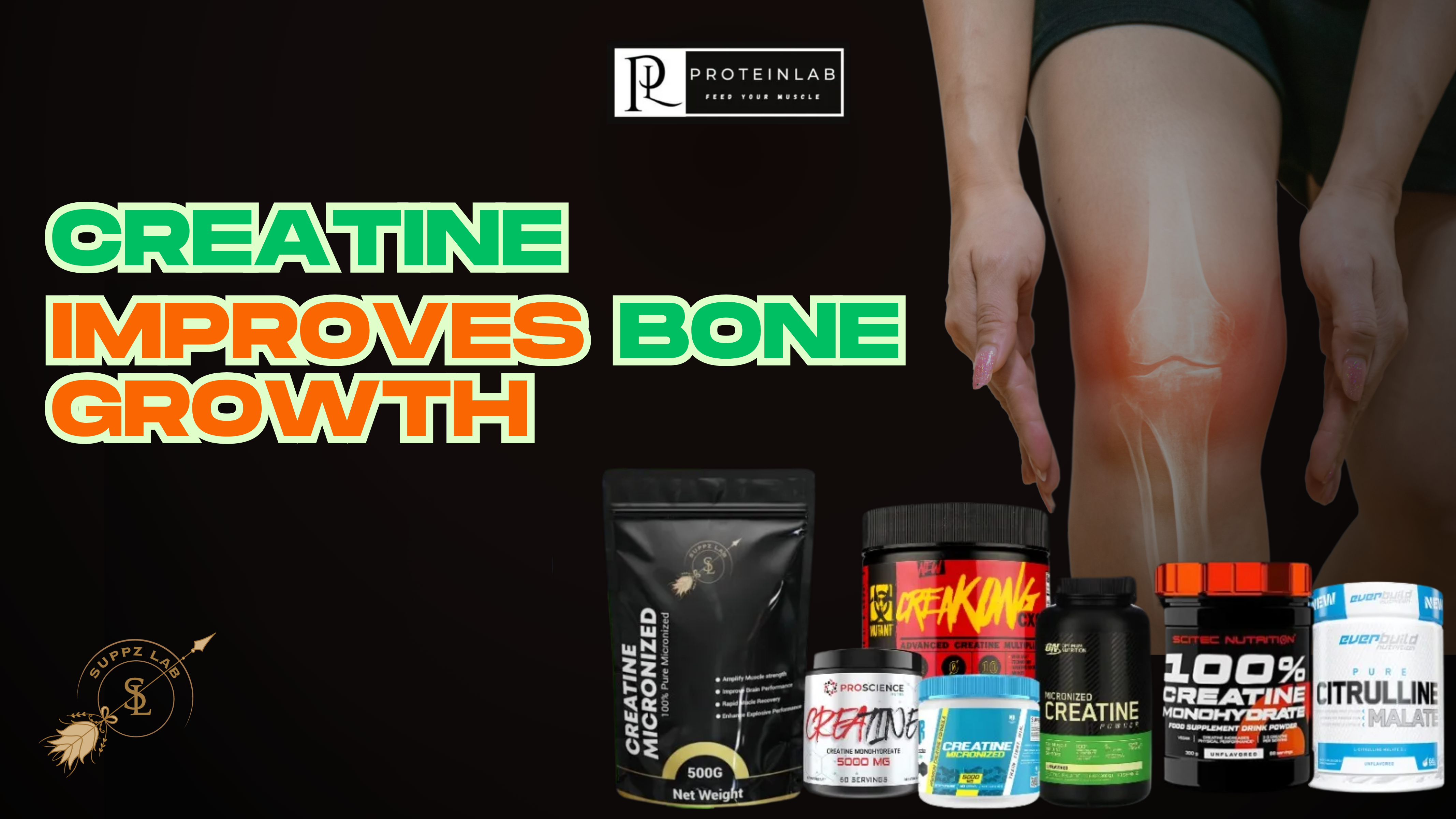
7. Creatine Improves Glucose Tolerance
Creatine might assist with the combating of diabetes, as it has been shown to improve glucose tolerance. Derave and co-researchers showed that supplemental creatine increased glucose transporter (glut-4) expression and muscle glycogen content while improving glucose tolerance in a previously immobilized limb.
Since this study was conducted, it appears the reasons for the improvements in glucose tolerance were due to the increased expression of glucose transporter type 4. It seems the expression of this transporter was actually induced by IGF-1 and IGF-2, which are induced by creatine.
8. Creatine Reduce Sarcopenia (Age-Related Muscle Loss)
As we age there is a natural decline in the production of muscle-building (anabolic) hormones such as testosterone, growth hormone, and insulin-like growth factors (IGF-1). As a result, there is a natural tendency for those advancing in age to progressively lose muscle mass.
As mentioned, fast twitch fibers (the type that makes the bulk of our muscle size) respond well to supplemental creatine in the athletic population. These fibers are also the first to be sacrificed by the effects of sarcopenia. The powerful anabolic hormone, IGF-1, has been shown to localize in the fast twitch fibers and, significantly, this is the hormone most likely to dwindle to a greater degree as we age.
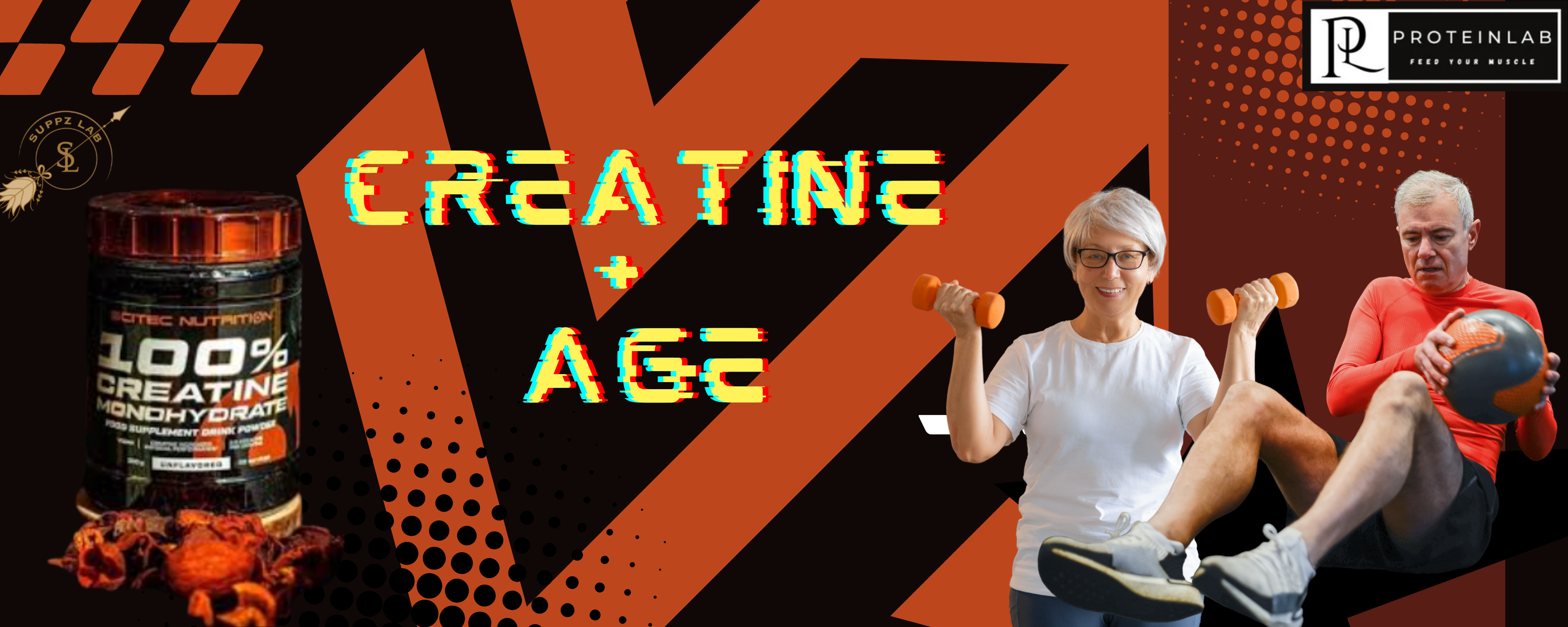
"CREATINE SUPPLEMENTATION INTO OLDER ADULTHOOD MIGHT NEGATE THE DEGENERATIVE EFFECTS OF AGE-RELATED MUSCLE WASTING."
It follows that creatine supplementation into older adulthood might negate the degenerative effects of age-related muscle wasting as it enhances fast twitch muscle fiber integrity, and, in turn, should help to maintain youthful levels of IGF-1.
At least this is the possibility researchers Louis and colleagues found when they studied creatine effects on IGF-1 and age. Other researchers postulate that the muscle volumizing effect of creatine might switch on a gene responsible for IGF-1 production.
Further research suggests advanced systemic methylation (discussed earlier) resulting from creatine use might predispose the cell to greater IGF-1 production. Which of these might prove to be the most efficient means of reducing age-related muscle wasting is up for debate, but creatine's potential as a muscle preserver in the aging population cannot be denied.
Creatine has also been shown to improve isometric strength in addition to body composition in older adults, provided a strength-training program is run concurrently. In their double-blind study, Brose and colleagues assigned 28 healthy men and women - over age 65 - to a 14-week resistance training exercise program, during which these subjects trained three days a week.
14 of these participants were given five grams of creatine mixed with two grams of dextrose while the other 14 subjects received a placebo of seven grams of dextrose. After 14 weeks, the creatine group was found to have experienced greater increases in fat-free mass and total body mass, in addition to improvements in isometric knee extension strength.
This study helps to confirm the role creatine can play in offsetting age-related muscle wasting if combined with a strength training regime.
9. Creatine Improves Performance and Muscle Mass Status in Vegeterians
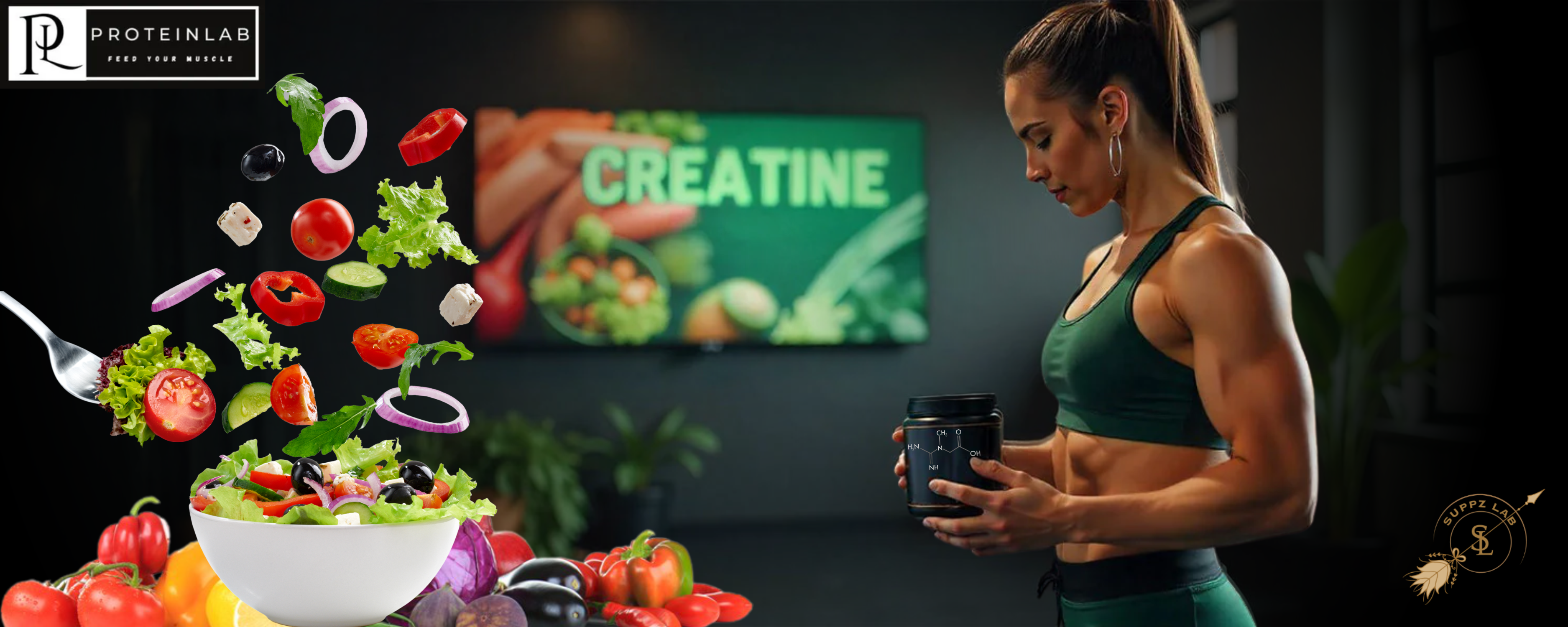
Traditionally a group with lower creatine levels compared to their meat-eating counterparts, vegetarians stand to miss out on the benefits creatine supplies, unless of course they supplement, it appears. It was also thought that given vegetarians' initial low creatine levels, they would be more sensitive to its erogenic effects.
Researcher Burke and his co-workers studied this proposal when they compared the changes in muscle creatine, muscle fiber morphology, body composition, hydration status, and exercise performance between vegetarians and non-vegetarians over an eight-week resistance-training program, in which, in a double-blind fashion, ten vegetarians took creatine and eight took a placebo.
Additionally, 12 non-vegetarians took creatine with the other 12 taking the placebo. The creatine-taking subjects were initially loaded with 0.25 grams of creatine per kilogram of lean body mass for seven days, before 0.0625 grams over the subsequent 49-day period.
It was revealed that vegetarian subjects who took creatine experienced a greater increase in total creatine, phosphocreatine, lean tissue, and total work performance compared to the non-vegetarians who took creatine, indicating vegetarians are more responsive to creatine supplementation.
Overall, researchers have found that creatine will also provide more of the following benefits:
- Promote greater gains in increasing FFM (Fat-Free Mass, which includes muscle mass).
- Increases muscle fiber size; and hypertrophy.
- Increases muscle mass.
- Increases myosin.
- Improves maximal strength.
- Improves maximal power.
- Improves single-effort sprint performance.
- Improves work performed during repetitive sprint performance.
- Improves performance during exercise of high to maximal intensity.
- Improves recovery following endurance activity.
- Has a neuroprotective function.
- Enhances bone regeneration.
- Improves muscle and performance in vegetarians.
Who Could Benefit from Creatine ?
In light of the above benefits, populations most likely to experience creatine-positive effects are:
- Bodybuilders and strength athletes.
- The aging population.
- Sufferers of neurodegenerative disease.
- Those with naturally lower levels of creatine (people, such as vegetarians, who have a lower base level of creatine)
Creatine monohydrate is the most common form of this supplement - the one most scientific studies and research use. It is bound with water to provide 88% pure creatine per molecule. In other words, one gram of creatine monohydrate will supply 4.40 grams of active product to the body.
Despite the newer creatine products to have hit the market as of late, monohydrate remains the most used form of creatine (400 million in annual sales in the US alone).
Micronized Creatine
Micronized Creatine is essentially creatine monohydrate but with much smaller molecules (this creatine has been micronized, which means its molecules have been cut up or divided). This dividing or cutting reduced the surface area of the creatine, making it easier to absorb and lessening any potential stomach discomfort.
It also reduces the unwanted bloating effect - one of monohydrates drawbacks. It is also thought to be purer to monohydrate and more effective as a result (it goes through more processes).
Creatine Phosphate
As mentioned earlier, for creatine to be effective it first has to bond with a phosphate group to become creatine phosphate. It would then follow that taking a creatine phosphate supplement would give better results than the monohydrate form, right? Probably not: the reality is, that creatine phosphate has only 62.3% creatine per molecule as opposed to monohydrate, which has 88%. As well, creatine phosphate has never been shown to be more effective than monohydrate, and it is more expensive to buy.
Creatine Citrate
This is essentially regular creatine bonded with special molecules to increase absorption. This type of creatine mixes extremely well but has only 400 milligrams of active creatine per gram. Also, it is very expensive. However, it does cause less stomach discomfort in those susceptible.
Creatine Ethylester
Widely touted as the future of creatine supplementation, CEE is thought to have absorption rates up to ten times higher than regular creatine due to its solubility. This solubility improves its transport over biological membranes such as muscle.
Basically, CEE is creatine monohydrate with an ester attached (an ester is made when an alcohol molecule is combined with an acid). Normal creatine molecules have one positive and one negative end. However, the ester attached to this molecule counteracts its charges, therefore making for greater absorption.
Thus far no scientific studies have been done on CEE, but anecdotal reports suggest it is superior to creatine monohydrate in several ways. Reported benefits of CEE include faster absorption, smaller dosages needed, and elimination of the "creatine bloat" look (CEE is thought to pull nearly all the water into the cell, whereas regular creatine that is no so well absorbed leaves much of the water sitting outside of the cell, which causes the bloated appearance).
Kre-Alkalyn
One of the main goals of creatine manufacturers is to improve the absorption rate of their products to ensure greater results in performance and muscle size in those who use these products. Kre-Alkalyn, a buffered form of creatine that is processed at higher PH levels than regular creatine monohydrate, is believed to have one of the fastest absorption rates of all.
Regular creatine is broken down into a waste product called creatinine before the active compound is absorbed - this lowers the absorption rate. With Kre-Alkalyn, this conversion to creatinine is halted and the absorption rate is enhanced as a result. Reported benefits include a faster absorption rate, no loading phase, no creatine bloat, and immediate results.
Creatine Serum
One of the more controversial of the creatines, creatine serum is variously reported to give great results or no results at all. This is basically creatine dissolved in water, often with various vitamins and amino acids added. Many like this product as there is no loading phase required and it is easy to use (it is simply dropped under the tongue).
On the downside, scientific evidence points to it as being virtually useless as creatine is unstable in liquid (it breaks down to creatinine over time).
Effervescent Creatine
Effervescent creatine is combined with sugar or sodium and a chemical that gives it an effervescent quality. It is thought to have better absorption than monohydrate and tastes better. However, it does have sodium and/or sugar, two compounds bodybuilders generally try to eliminate. It is also very expensive.
Potential Problems ?
Creatine has, in some circle numbers, gained an undeserving reputation as a harmful product. Some significant studies have helped to discredit these allegations to show that creatine is indeed a safe substance (more negative effects debunked).
In a 2003 study, Dr. Kreider and his colleagues found that long-term creatine use (over a 21-month period) did not pose any problems for football athletes who took five grams a day compared to their non-using counterparts. Indeed, the athletes who did take creatine experienced fewer episodes of cramping muscle tightness, muscle pulls, dehydration, illnesses and contact injuries.
A more recent study (May 2005) found 200 subjects taking 10 grams of creatine a day experienced no significant health differences compared to those who took a placebo (non-creatine substance).
In this - a double-blind, placebo-controlled trial - subjects took the ten grams of creatine for 310 days, during which they were periodically questioned about their health while their plasma urea and urinary creatine and albumin concentrations were measured.
Both these landmark studies help to underscore the fact that if used correctly, creatine will benefit, rather than harm one's health.
In another study, Santos and colleagues found that creatine supplementation of 20 grams per day over five days did not result in adverse side effects such as cramping, dehydration, or diarrhea. They instead found it to promote cell recovery at these dosages.
CONCLUSION
Bodybuilding and strength athletes to improve size and strength have over the past decade or so popularly used creatine as a supplement. As this article has shown, creatine applications stretch to many other populations: older adults, sufferers of neurodegenerative disease, and those with naturally lower levels of creatine being but three.
As for Team ProteinLab Malaysia, we personally recommended the brand SuppzLab Nutrition as they are not only particular about the precision of the products but at the same time, they use premium design and packing while selling them at an affordable price.
As shown, the processes it underpins are also quite vast, making it more than just a performance enhancer. Additionally, creatine has been scientifically shown to be safe for a majority of users. Creatine supplements come in many different types, all with their pros and cons.
Monohydrate remains the number one selling type, but the emerging CEE and Kre-Alkalyn show great promise. With all the study and debate surrounding creatine use (which is a good thing), one thing we can be sure of is that creatine will remain at the forefront of sports supplementation for some time yet.
